And this is the way you will know that your editor loves you: In the late hours of the evening, she will instruct you to do push-ups. Ten of them. Right there in your office, on the floor next to your desk. The same floor where she once told you to lie down and stare at the ceiling until the words started.
And you will do them, of course. Right there on the floor of the office, even though usually you cheat and do your push-ups on the staircase.
You will think that your editor believes you must be like Terra, the young girl of whom Susan Goldsmith Wooldridge writes in poemcrazy: freeing your life with words. Terra, dyslexic, who closed her eyes and spoke her poems, who was led to believe her name meant dirt until she learned the powerfully subtle distinction that her name meant earth. You will think your editor believes that, like Terra, “the poems were waiting in her head.”
Push-ups, she must believe, will push them out.
You will do the push-ups. You will make the lists of words she asks you for on your notebook page, numbered from 1 to 50. You will choose some of the words and write them on your Whiteboard. You will make a mess of the Whiteboard list with a marker of a different color, looping pairs of interesting words together: Yerba sock, Keats portfolio, manila punch, wool mate, blue cozy, basket weight, stone teeth.
You will say to yourself: Push-ups and Whiteboard lists will not an article write. But you will not — now hear this — you will not ask Why?
She will have read the section of the book you are mulling. You will know this. She will realize the final chapter is entitled “Please Don’t Understand.” She will know that Wooldridge says, “Poetry sometimes takes us not into nonsense, but beyond sense.” She will know that Wooldridge tells students, “Don’t think. Forget about understanding.”
Your editor will say Please. And so you will do 10 more push-ups.
“Does the ocean, or you, or I, always need to understand?”
_______________________
This week’s practice exercises included some fun options. Wooldridge suggested changing our perspective by referring to an object as “thou” instead of “it, ” and asking questions of it. I played with a couple of objects this way:
Chore Boy
Green sponge, thou who sits wadded
in the sink drain, surrounded by detritus
from thy recent scouring expedition,
How long wilt thou tarry? Earnestly
I long for thy departure
yet day after dishwashing day
thou remains lingering, triumphant
over the electric range top yet powerless
to remove thyself from my stainless steel basin.
What dost thou think of today?
Though I am loath to touch you,
might this be the day we bid you a fond farewell?
Firewood
Thou wast nothing when I plucked thee
from the snow-covered fire pit.
Spent pine log, misshapen hunk
of black charcoal,
I held thee in my palm.
Thou didst bear no load.
Yea, thy weightless existence
crumbled at the slightest touch.
Thou carried no promise. But look,
between thy layers the sun catches
a glint of thee, a light
where perchance
thou most craves one.
In another exercise, she directed readers to find an object and give it a name (either its real name or a created one), describe the object by comparison to something else, and then asking “the object to bring you a quality it has that you need” in this format:
Name
you look like
bring me…
In one of her examples, participants drew pictures of the objects along with the poems. Here are a few from my practice:
Peach shell
your fragile wall
holding in, holding out,
Bring me shelter
Blue marble
winking from your center
like a cat through window glass,
Bring me mischief
White stone
smooth as the back
of your hand
Bring me comfort
3 shells, nestled
like you grew as 1
Bring me meaning
When you finish your push-ups, you will have no new insight. You will go to sleep and in the morning you will write an article. You will not explain why you did the push-ups; nor will you expect anyone to understand.
You will simply return to the last chapter, to Susan Wooldridge and Rumi, to Robert Bly and St. John of the Cross and you will read again:
Don’t think.
Forget about understanding.
Light is the last thing we need.
_______________________
We’re reading poemcrazy: freeing your life with words together this month at Tweetspeak. Are you reading along? Perhaps you’d tell us in the comments your thoughts about Part 3: Hi There Stars or any practice exercises you did. Maybe you would even share a poem that came out of this week’s reading. If you post about the book on your blog, feel free to drop a link to your post in the comments.
And don’t forget to check out other fun and interesting National Poetry Month events at our Ticket Counter, especially the Phone Poets Project with Diode’s Patty Paine.
Buy poemcrazy and join in the fun. For next Wednesday, we’ll read Part 4: Open the Window. Or follow this link to read the previous posts in this poemcrazy book club series.
Photo by Brad Montgomery. Creative Commons, via Flickr. Post by Will Willingham.
__________________
Buy a year of Every Day Poems, just $5.99 — Read a poem a day, become a better poet.
- Earth Song Poem Featured on The Slowdown!—Birds in Home Depot - February 7, 2023
- The Rapping in the Attic—Happy Holidays Fun Video! - December 21, 2022
- Video: Earth Song: A Nature Poems Experience—Enchanting! - December 6, 2022
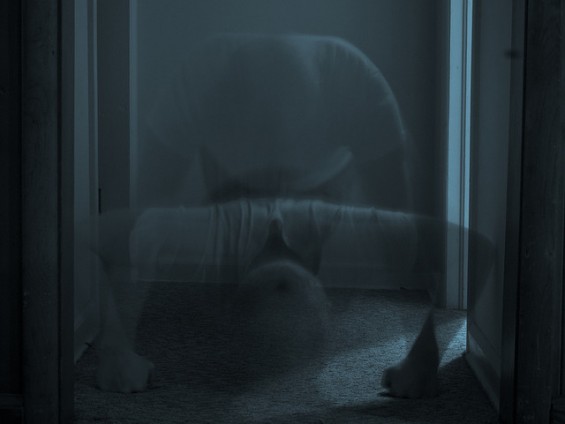
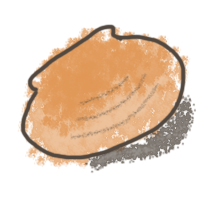
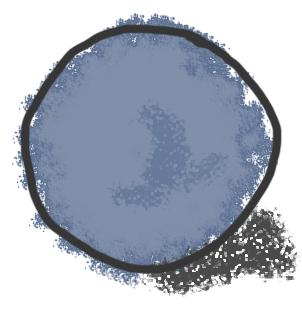
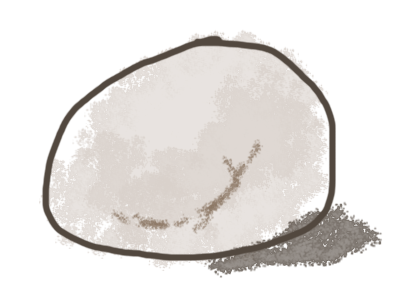
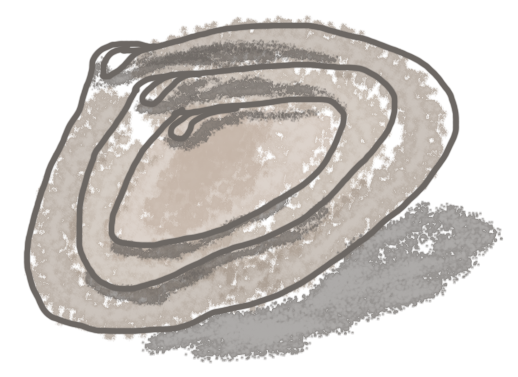


L.L. Barkat says
You must have one crazy editor. I can’t wait until she tells you to walk into the lake at midnight under the moon 😉
Seeing as this one is called “Hello Stars,” I think you got off easy, as it goes. No foray into the night.
So funny, this piece. What would we do if all your writing came easy? T’would be such a loss. I’m partial, btw, to those drawings. They are simply marvelous. Almost shy. Love. 🙂
Will says
I have an editor with the occasional unorthodox idea, yes. They seem to work, though. 😉
I think it would take a lot of the fun out of it for me if it all came easily.
Shy, eh? Can a pixel drawing be shy?
Elizabeth W. Marshall says
wait, ya’ll are laughing and I am teary over this. There is so much committment here. And dedication. LW, keep doing whatever you do, because your writing gets richer by the moment. And I am a huge fan of everything that drips of the tip of your pen.
And why I ‘outed” myself on the tears is beyond me. Someone calls us to vulnerability and she shall remain, well nameless.
Will says
I’ll tell you what, Elizabeth. There are these folks (we’ll just call them editors) who come along and propose things that sometimes make no sense and your head tells you they just don’t get your situation and what they’re telling you won’t work. But this one of mine? Nails it every time. I’ve learned to trust her direction, even when she has me doing push-ups, even when I know that she doesn’t know where it’s going, because it will go somewhere. It always does. Maybe somewhere neither of us expected.
It’s okay to be teary over it. Sometimes those unexpected places can be a little tender. The tears are worth listening to, to see where they came from and where they might lead.
Monica Sharman says
If nothing else, your upper-body strength is better now. Oh, and I recommend wearing gloves while washing dishes.
Okay, I’ll try:
Pesky magpie,
brilliant lightning hidden
under plain cover,
bring me black-and-white
boldness
Will says
Monica, love that. Wonder, does it also take a certain boldness to go all gray?
Monica Sharman says
I think yes. But I don’t know how to make gray work in a magpie poem!
Glynn says
Well, I went back outside and tried talking to a tree, as Wooldridge suggested. Here’s the result: http://faithfictionfriends.blogspot.com/2013/04/back-to-nature.html
Will Willingham says
I keep thinking of Tim Taylor when your neighbor comes out, Glynn.
susan wooldridge says
I can’t tell you how happy your post makes me. (as my 20 month old grandson would say,”boppy”) and again, wish i could fold some of your words into poemcrazy. Glynn! Skip the practices that don’t speak to you. Lots of people read the book without doing the practices. My agent had me take them out. My editor had me put them back in. Loved your playful post about “neighbors” regardless.
XXOXOXo Susan
Elizabeth W. Marshall says
I have sent my husband to pick up my second copy of Poemcrazy on his way home from work. We are in a town with no Barnes and Noble. He emailed me, I have your book and I emailed him back I love you. ( I lost my first 🙂 I hope you feel the love 🙂 Susan. Can’t wait to get back to the bookclub.
Only a group of poets and the author would “get” this. If I lose it again I can help pay for your summer vacation. 🙂 And don’t ask how you lose a poetry book.
Will Willingham says
So we should hope you never get a Kindle, eh? I’d hate to see you lose that… 😉
Elizabeth W. Marshall says
Got one of those too. Books stay put there 🙂
Will Willingham says
Thanks for dropping in again, Susan, and your kind words. So much of this section spoke very deeply to me, which of course is what induced the writer-stump which led to the push-ups. The drawings were all I had to go on for a while.
Maureen Doallas says
Love how you’ve illustrated this piece.
Maureen Doallas says
Last Chapter
Words started on the floor
of the office, right there
where you do subtle push-ups
in earth next to your desk,
stare at dirt and believe the ceiling
has eyes and your editor must
like the stone teeth of Keats.
You meant to make that Yerba punch
that takes you beyond sense to ask,
why cheat, poems, and on the staircase?
The Whiteboard a mess of marker
and words looping, you closed
your eyes and spoke of a portfolio
of wool, the mate of the blue cozy,
the weight of the manila sock not
something you are mulling but will,
though you are loathe to. Do more,
the powerfully waiting editor
directed. You think to bid departure
but played to forget understanding.
You crumbled over the electric range.
Green at dishwashing, you wadded remains
between misshapen layers of detritus
and held in your palm no load more
weightless than existence, which, perchance,
you believe you are entitled to long for,
earnestly. Your glint, like light the sun carried,
drew the editor to your fragile promise.
The last chapter she will read again.
Jody Lee Collins says
May I ‘cheat’ (since I’m eavesdropping and all?) Glynn’s post made me so much smile and yours, well, I’ve not MET your editor, but we have corresponded w/ her a bit. So your thoughts just had me nodding my head. Yes, yes, she can do that. So about the cheating: I’m not reading poemcrazy,
I’m reading LL’s ‘God in the Yard’. (I’m late to the party.) I did not want to read it–it’s about ‘spiritual practice’ and ‘playing towards God.’ Terms I wasn’t sure of, and besides there was all this commitment–12 weeks.
I got over myself and jumped in. I am being changed every week.
About the ‘playing towards God’–may I share this piece? It is a selection from one of my ‘Sabbaths on the page’ as Laura urged us to take:
week 7 gone: presence
This window frame of deck wood
limits my view to
just this space.
oh, how it’s changed in
seven long days,
clouds shape-shifting,
shadowing the trees below
the view–greener, a brighter new,
color threatening in tinges
at the edge of shiny leaves.
I love this presence
looking out my
stained glass window to the world.
I have expected God to
come out to play
and He’s shown up
every time.
Thanks again for shining through.
Jody Lee Collins says
The ‘thanks again’ line is for you…. Just to clarify. 🙂
Linda says
I don’t have the book and am, as usual late to the party. But I do love thy words and have enjoyed reading the comments.